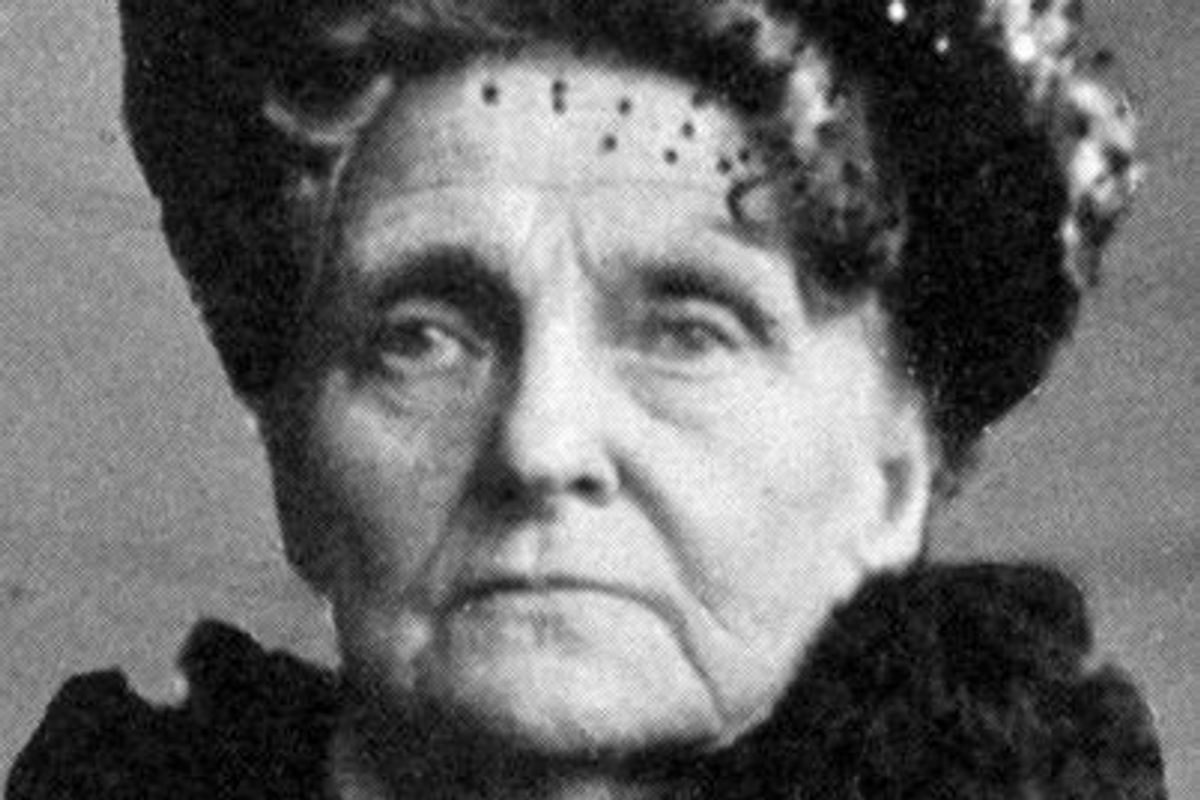The truth about America's first female tycoon who was so frugal she set a world record
Hetty Green supposedly never even spent money on new underpants.
America's first female tycoon so frugal she's in record book
There is nothing wrong with pinching a few pennies here and there. Most people on a budget or fixed income become really good at learning where they can save money but frugality isn't something you consider when thinking of millionaires.
Yacht trips in the Mediterranean, swanky dinners on plates that cost more than people's rent payments and extravagant shopping sprees are all things that come to mind when thinking of the uber-rich. Very seldomly would anyone equate frugality to extreme wealth, but that's likely because they didn't know about Hetty Green.
Henrietta ("Hetty") Howland Robinson was born in 1834 to a wealthy Quaker family in New Bedford, Massachusetts where she was raised mostly by her grandparents. Her grandfather and father amassed their wealth through whaling, and according to the Forgotten Newsmakers, she was an expert on stocks and bonds by age 15.
Green's expertise didn't come by through her genuine interest at first. Due to her grandfather's poor eyesight, he had the young girl read the financial news to him daily. Recently the heiress has come to modern public consciousness after her story was shared on different social media platforms highlighting her extreme money saving techniques.
The Quaker woman never knew poverty as she was born into millionaire status in the 1800s, but you wouldn't know that from her spending habits. In the social media post it mentions that she never purchased a new pair of underwear after learning to mend them at the age of 16. Until her death, Green was wearing the same pairs underwear she had worn since her teen years.
In another truly mystifying supposed factoid the wealthy woman shopped around for the best price to have her son's broken leg set. Her delay in medical treatment for her son resulted in him having to get his leg amputated. Though, this part of the story has been disputed by Roberta Sawyer who spent her childhood on the Green's estate tells South Coast Today, "Hetty's own daughter, Sylvia Wilkes, told a completely different story. The truth is that Hetty Green went around with her son for three days trying to find a doctor who felt he could save Ned's leg instead of amputating it."
 Hetty Green Blazing Trailswww.nps.gov
Hetty Green Blazing Trailswww.nps.govAccording to Wilkes much of the information on Green seems to be sourced from the book "The Day They Shook the Plum Tree," which she calls "mistruths" in 2011. But the bulk of the claims about her frugal nature seem to be true according to books, multiple articles, and a 1905 character study written about the woman. Green learned to rely on left overs while in boarding school, wore the same black dress for years and dressed her children in secondhand clothes.
The woman's spending habits are what landed her in the Guinness Book for being the "world's greatest miser." Looking outside of her tight fisted nature, she was actually a powerhouse of an individual. She not only had her own bank account before women were legally allowed to open their own accounts, she was respected in the financial world by giants on Wall Street.
Green was a woman in a man's world who not only inherited wealth but amassed her own wealth through her strict budgeting and her ability to navigate stocks. Maybe should be remembered as a financial pioneer ahead of her time instead of her ability to hold on to a dollar. "Hetty: The Genius and Madness of America's First Female Tycoon" is attempting to do just that, highlighting the woman's business sense not just her eccentric nature.
 File:Hetty Green and Terrier.jpg - Wikimedia Commonscommons.wikimedia.org
File:Hetty Green and Terrier.jpg - Wikimedia Commonscommons.wikimedia.orgGreen was so savvy with her investments that the millionaire had to bail out investors on Wall Street. She foresaw the "Knickerbocker crisis" of 1907 and when John Pierpont Morgan (yeah, that J.P. Morgan) called the greatest minds in finance to help him figure out how to save the economy, Green was the only woman at the table.
She bailed out The New York Central Railroad with a loan according to Yahoo Finance, which cited quotes from the 1916 Literary Digest. Green explains in one of the quotes that she knew the chaos was coming and did her part to help others without taking advantage of the situation. So much for the stingy miser label.
“When the crash came I had money, and I was one of the very few who really had it. The others had their ‘securities’ and their ‘values.’ I had the cash and they had to come to me,” she said.
Yahoo Finance highlights that she loaned the New York City government $1.1 million at the height of the 1907 panic and just months before she loaned them $4.5 million.
“Those to whom I loaned money got it at 6%. I might just as easily have secured 40%,” she explained. “Never in my life—no matter what has been said against me—have I practiced usury, and no one knows it better than the wealthy men who have had business dealings with me.”
There you have it, Hetty Green, The World's Greatest Miser, investment tycoon, business woman and multimillionaire who turns out to not be as stingy as people made her out to be.




